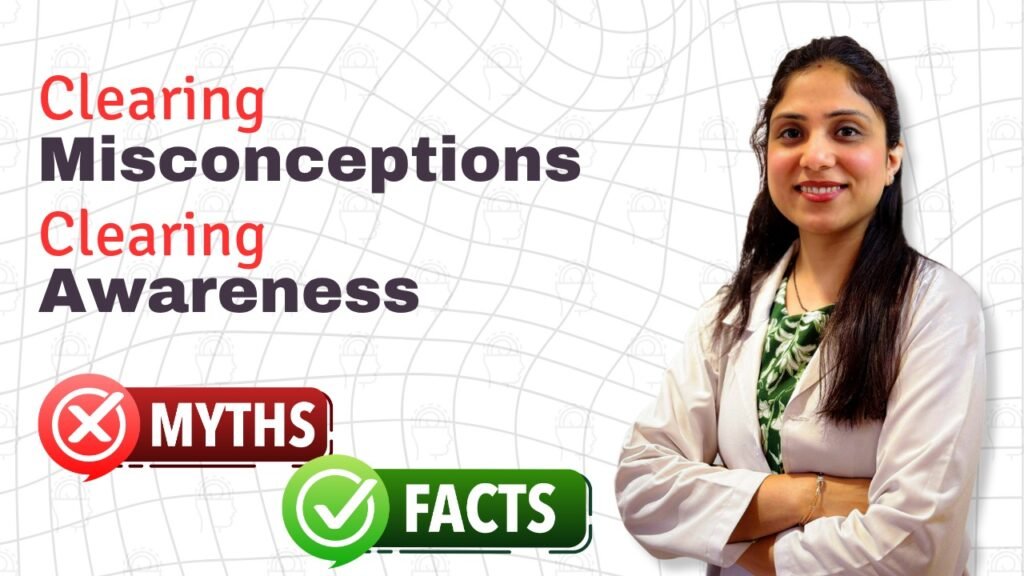
Written by Dr. Sakshi (MBBS, MD Psychiatry)
The Gen Z Misuse of Mental Health Language
Today, a lot of people talk about mental health. That’s a good thing. It means they care about how they feel inside. But sometimes, people use mental health words in the wrong way. One of those words is setting boundaries.
Let’s talk about what setting boundaries really means—and how some Gen Z people might be using it as an excuse to avoid doing the right thing.
What Is Setting Boundaries?
Setting boundaries means knowing what feels okay and not okay for you. It also means telling others how they should treat you. You are saying, “This is fine,” or “Please don’t do that.”
For example, if you don’t like phone calls late at night, you can say, “Please don’t call after 9 PM.” That is setting up a boundary or a limit to something.
It is not about being mean. It is about feeling safe and keeping your peace.
Why Boundaries Matter
When you set boundaries to find peace, it helps you feel better. You can focus more, sleep well, and feel strong inside. Boundaries are not walls—they are lines that help protect your heart and mind.
Setting boundaries in relationships also helps both people know what’s okay and what’s not okay. It keeps things honest and kind.
Gen Z and Mental Health Words
Gen Z talks a lot about healing, rest, and self-care. That’s great. But sometimes, the talk turns into an excuse. Some people say:
- “I’m not going to school. I’m protecting my energy.”
- “I won’t reply to your texts. I’m setting boundaries.”
- “I blocked my friend. I need space.”
But are they truly caring for themselves—or just running away from things?
Avoiding Work Is Not Setting Boundaries
There’s a big difference between caring for your mind and avoiding what needs to be done.
If you don’t finish a task and say, “I was setting boundaries,” it might just be an excuse. If your friend is hurt and wants to talk, and you say, “I can’t. I’m protecting my peace,” that might not be fair.
You can care for yourself and still care for others. That’s the balance. Especially when it comes to setting boundaries in a relationship, it’s about respect—not escape.
How to Set Boundaries in a Relationship (The Right Way)
So, how to set boundaries in a relationship the right way?
- Be clear: Say what you need.
“I need quiet time after work.” - Be kind: Talk with care.
“I care about you, but I need a break.” - Be fair: Think about how others feel.
“Let’s talk later when we’re both calm.”
Setting boundaries in relationships means being honest, not cold. You don’t push people away—you just protect your peace.
What Happens When You Misuse Boundaries?
If you use setting boundaries as a reason to avoid everything, it can hurt people.
- Your friends may feel rejected.
- Your family may feel lost.
- Your boss may lose trust.
Also, you stop growing. Doing hard things makes you stronger. If you skip them, you miss your chance to grow.
The Internet Can Confuse Things
A lot of Gen Z learns from short videos and posts online. They read big words like “toxic,” “gaslighting,” and “boundaries.” These are real issues. But they’re not meant for every small problem.
Some people online say, “Cut off anyone who upsets you.” That’s not always right. Real life is not perfect. Friends fight. Work gets boring. Family annoys you. Learning how to handle all this is part of growing up.
That’s why setting boundaries in a relationship is not about walking away. It’s about standing up—with love and calm.
How Dr. Sakshi Can Help You
Dr. Sakshi is a kind and skilled psychiatrist. She talks to people who feel confused or tired. She helps them understand what is real and what is just fear.
She helps you set boundaries to find peace, not avoid life. With her help, you can build healthy limits without cutting off people who care.
Her advice is simple, warm, and full of care. She helps you grow strong and stay kind.
What You Can Do Today
- Ask: Am I setting boundaries or avoiding something?
- Talk to a therapist or a friend when you feel upset.
- Try small brave acts—like replying to a tough message.
- Think before cutting someone off. Is it needed?
When in doubt, speak with Dr. Sakshi. She helps you protect your mind, not run from your life.
Book an appointment with me and let’s understand your journey—together.
📍 Dr. Sakshi
MBBS, MD (Psychiatry)
Know your values: Understand what’s important to you—your time, energy, privacy, etc.
Be direct and clear: Use “I” statements to express your needs (e.g., “I need time to recharge after work.”)
Start small: Begin with low-stakes situations before tackling more difficult ones.
Follow through: Consistently reinforce your boundary without over-explaining.
Practice self-respect: Remember that setting boundaries is a form of self-care, not selfishness.
Be firm and unemotional: Narcissists may try to provoke or manipulate; stay calm and detached.
Use clear, non-negotiable language: e.g., “I’m not available for conversations where I’m insulted.”
Limit access if needed: Grey rock or low-contact methods can help maintain distance.
Expect pushback: Narcissists often resist boundaries—stand your ground without arguing.
Protect your mental health: Seek support from friends, therapy, or support groups.
Clarify your job role: Know what is (and isn’t) your responsibility.
Use respectful communication: e.g., “I’m at capacity right now—can we prioritize?”
Set time limits: Don’t take work calls or emails after hours unless agreed upon.
Say no diplomatically: e.g., “I’d love to help, but I need to finish this first.”
Document everything: For your protection, keep written records of boundary-setting if needed.
Constantly overwhelmed or burned out
Says yes to everything, even at personal cost
Feels responsible for other people’s emotions
Struggles to assert needs or express disagreement
Tolerates disrespect, manipulation, or overwork
Conditioning: You may have been taught to prioritize others over yourself.
Fear of conflict or rejection: You worry setting limits will hurt relationships.
Low self-worth: You may believe your needs don’t matter.
Manipulation: Others may guilt-trip you when you assert yourself.


